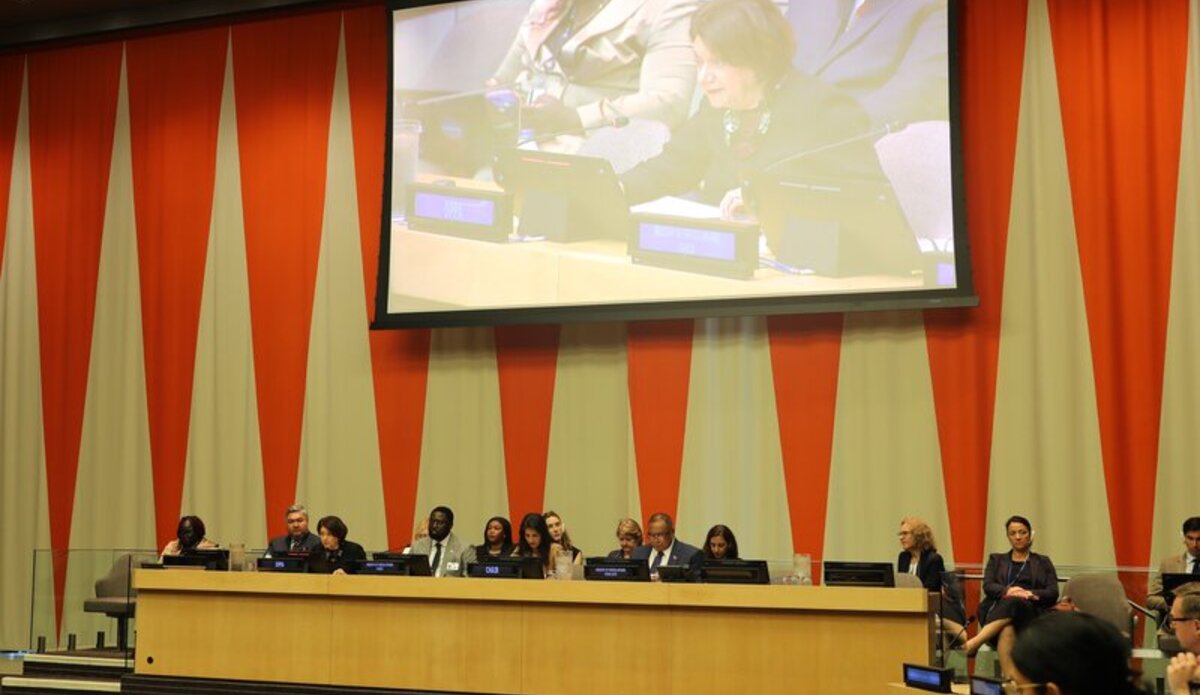Remarks by Rosemary DiCarlo,
Under-Secretary-General for Political and Peacebuilding Affairs
Annual Session of the Peacebuilding Commission
New York, 19 June 2024
Madam Chair,
Distinguished colleagues,
I am honored to address you today on behalf of the Secretary-General, who conveys his regrets at not being able to attend this session.
The Secretary-General places the highest importance on conflict prevention and peacebuilding and is a firm advocate of a strengthened Peacebuilding Commission.
Madam Chair,
We are meeting at a moment of considerable strain on the international peace and security. Conflicts are becoming more numerous, more protracted and more complex.
They are increasingly shaped by global and regional geopolitical dynamics and exacerbated by the widening divides.
Violence continues to escalate around the world, while negotiated solutions have become harder and harder to achieve. Threats to life and dignity abound, and international norms and legal frameworks are being disregarded.
Against this backdrop, the role of the Peacebuilding Commission remains critical and more needed than ever.
Madam Chair,
When the UN’s peacebuilding architecture was established twenty years ago, then Secretary-General Kofi Annan described it as filling “a gaping hole in the United Nations institutional machinery.”
At the time, there was no dedicated mechanism to help countries transition from war to lasting peace or to support Member States to consolidate fragile gains.
Since then, the Commission has made significant strides to fill this “gaping hole” offering effective and timely assistance to countries and regions that have sought its support.
The Commission was instrumental in supporting the democratic transition in The Gambia and helped the Government and the people forge a new social contract.
The Commission’s collaboration with Timor-Leste not only advanced the country’s stability but enabled it to contribute to regional peacebuilding efforts through South-South and Triangular Cooperation.
The Commission’s support to Sierra Leone during the Ebola and COVID-19 pandemics helped sustain peacebuilding progress and resilience.
These are just a few examples among many.
Madam Chair,
As we mark the 20th anniversary of the UN’s peacebuilding architecture, we must build on these achievements.
The Pact for the Future provides us with a forward-looking framework.
It recognizes the importance of nationally led efforts, including the central role of civil society, women and youth, and the value of UN partnerships with regional organizations and international financial institutions.
Notably, the Pact calls for the strengthening of the Peacebuilding Commission.
The direction is clear. Our task is to translate this ambition into practical progress.
The ongoing Peacebuilding Architecture Review offers a timely opportunity to identify the next steps.
First, the Commission should be equipped, strengthened and empowered to assist interested Member States to develop and implement national strategies for prevention and peacebuilding.
The recent presentation of Sao Tome and Principe of its national strategy to the Commission is a promising example.
In line with this, the Secretary-General's Peacebuilding Fund has designated support to such national strategies as a new priority.
Second, the Commission should have more systematic and robust links to other UN bodies and processes. The recent joint meeting between ECOSOC and the Commission on Haiti illustrates the value the PBC can bring complementing the efforts of the Security Council.
And third, the Commission should be positioned to engage more deeply with regional organizations, international financial institutions and other critical partners whose contributions are essential to sustaining peace
Madam Chair,
At the first meeting of the Peacebuilding Commission, then Secretary-General Annan remarked that the Commission symbolized “both hope and perseverance”. That sentiment remains highly relevant today.
The Commission is no longer a new institution, but its relevance and potential are undiminished. At a time of increasing need, we must equip it to deliver fully on its mandate.
Thank you.

